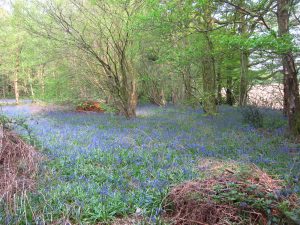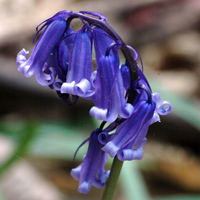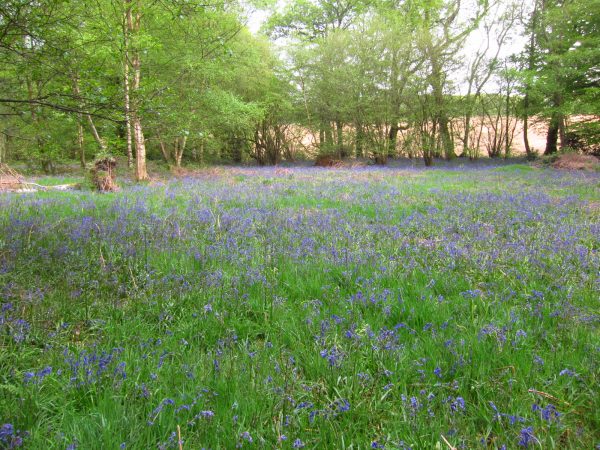A threat to bluebells ?

Spring brings a variety of blue flowered plants such as bluebells, hyacinths and squills in our woodlands, parks and gardens. Bluebells are ‘easily’ recognisable. However, there are different types of bluebells. The bluebell that is native to the UK has the Latin or Linnaean name of Hyacinthoides non scripta. The Spanish bluebell (H. hispanica) is also to be found, and this hybridises with the native form, giving rise to intermediate types.
The native bluebell has deep blue and scented flowers that hang from an elegantly arching stem. It is found in abundance in many deciduous woodlands and hedgerows across the UK, though it is unusual or rarer in parts of East Anglia and Scotland. The capacity of the Spanish Bluebell to hybridise with the native form has been seen as a threat to the native Bluebell - but now another concern has been ‘identified’.
 Christine Tansey at the University of Edinburgh has analysed some 200,000 phenology records submitted to the Woodland Trust (Nature’s Calendar). These records contained information / data such as the time of flowering, first leafing of 22 different species - across the country (north to south, east to west).
Christine Tansey at the University of Edinburgh has analysed some 200,000 phenology records submitted to the Woodland Trust (Nature’s Calendar). These records contained information / data such as the time of flowering, first leafing of 22 different species - across the country (north to south, east to west).
Careful analysis showed that plants are responding to warming by coming into leaf and / or flowering earlier. Broadly speaking, leafing or flowering occurred some 3 to 8 days earlier for each degree rise in temperature. The data further suggest that some species will be better able to adapt to a warmer climate - notably silver birch, beech, ash, and wood anemone. However, some may struggle with a changing climate and increasing temperatures - for example, garlic mustard, sycamore and larch. The bluebell also fell into this category. Bluebells take advantage of the open canopy in early Spring, growing and flowering before the canopy closes over as the leaves of beech, oak etc. expand and mature. If bluebells cannot time their growth and development to coincide with the open canopy then it may be that they will lose out in the struggle for survival.


Comments are closed for this post.
